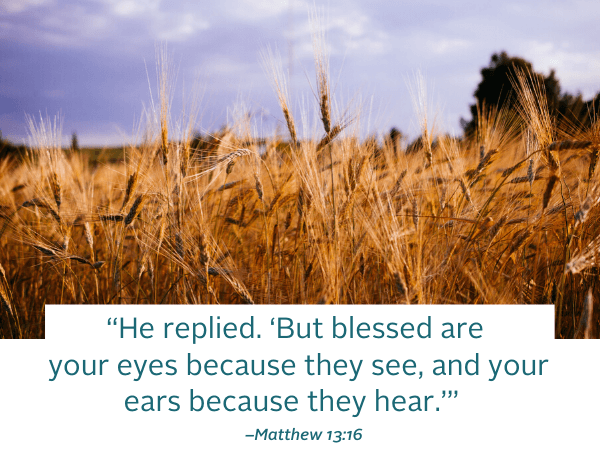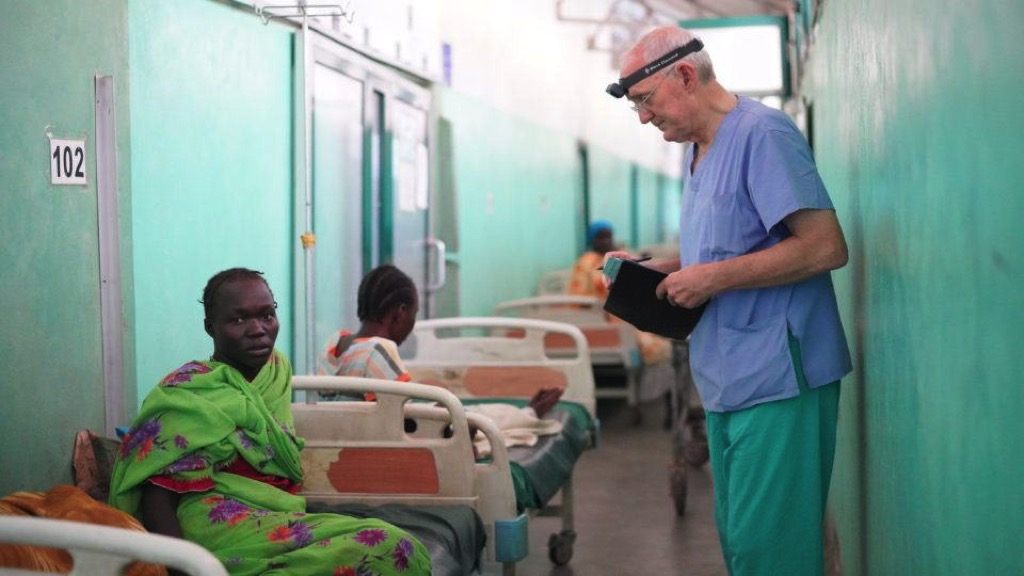With Healthy Soil, All Can Flourish – Your Weekly Reflection from CMMB

Over the course of the next few weeks, our readings introduce us to a series of parables. Entwined with lessons of faith, each is meant to deepen our understanding of the Kingdom of Heaven.
Today’s reading begins with the parable of the sower: Jesus speaks of a farmer, who sets out to plant his seeds. While he scatters them, some fall along a walking path and are immediately eaten by birds. Some land on rocky terrain with little soil to thrive. Others fall among a thorny patch without room to grow. Only the seeds that fall on healthy soil flourish to produce a great yield of crop.
From the parable of the sower, we learn two very important lessons about our faith and how we come to understand it. Jesus intentionally speaks to us in parables so that we may reflect on his message. Only those who take the time to reflect can see its true meaning.
The walking path, the rocky terrain, the thorny patch, and the healthy soil are all metaphors for how people hear and interpret Jesus’ teachings. Some will immediately turn away. Some will accept Jesus but lose their way in the face of challenges. Others will welcome Him but let their opinions be swayed by nonbelievers.
Only those who welcome, protect, and nurture their faith are offered the fruitful abundance that is the Kingdom of Heaven.
At CMMB, the lessons woven within this parable guide our approach to serving. When we launch programs to feed families, we do so in a way that gives them the tools they need to thrive—long after our intervention is over. When we send volunteers to the field or host virtual training sessions, we do so knowing that the teachings we impart will go on to inform local, in-country healthcare workers for generations to come.
We serve communities so that they may serve themselves. Like Jesus, we plant our seeds in healthy soil, so that they may thrive on their own. This Sunday we leave you with the words of longtime volunteer Dr. James Peck, who has served in the Nuba Mountains of Sudan. Here, he describes the hope he has for the Nuba people and the exchange of knowledge that changes lives.
I hope for the same thing that all of us hope for. That the Nuba people are no longer persecuted by the government. That they can begin to till their land and begin making a life for themselves. That we, Dr. Tom Catena, and whoever is willing, can come and help teach all of the nurses, all of the clinical officers, and all of the medical doctors to take care of their own people at a high level.
I believe that this is going to happen, but it’s not going to be easy. I truly appreciate CMMB’s work towards making these hopes come true—developing protocols, developing better instrumentation to help these people learn. I find that the clinical officers I teach are very enthusiastic, they really do want to learn; they just need some help along the way. Similarly, I find that the nurses really care about their patients, and they just need some guidance on how to get things done.
It’s a long-term project. It’s not a sprint it’s a marathon. But it is possible and I think it can happen.
In grace and peace,
Bruce Wilkinson
President & CEO, CMMB

